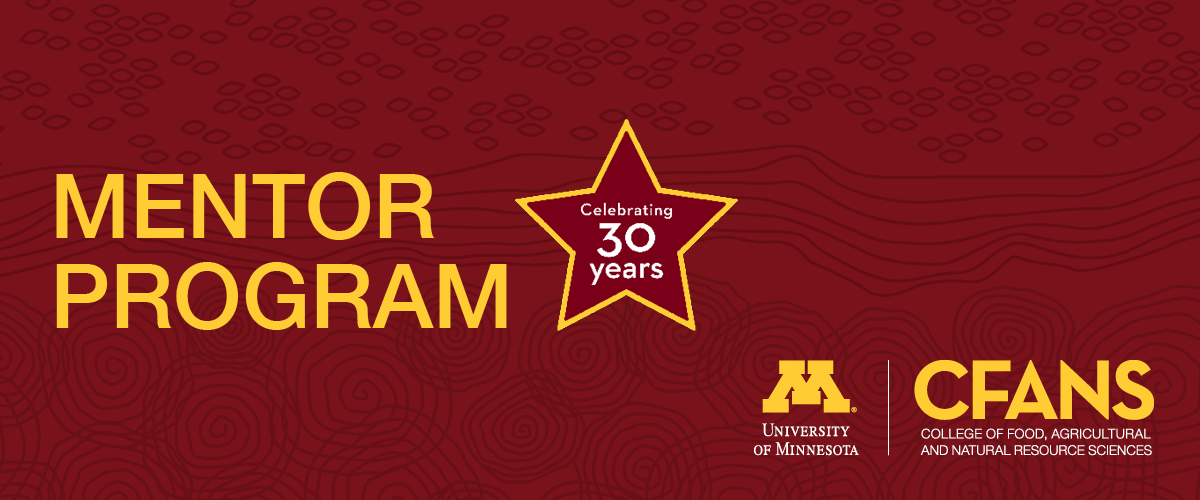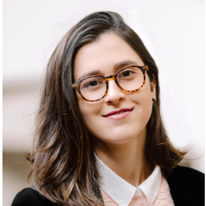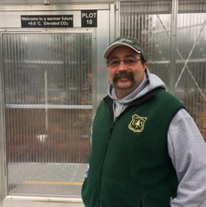
30 years of mentoring: Forest resources spotlight

This year we are celebrating the 30th year of the CFANS Mentor Program. Look for some exciting celebrations and recognition throughout the program year! Have a special memory, photo or story from one of your years being a part of the program? Please share it with us at cfansaro@umn.edu.
As part of our year-long commemoration of this milestone, we'll be highlighting a mentor and mentee match each month. Get to know forest resources mentee Luiza Lucena and mentor Randy Kolka.
Luiza Lucena is currently pursuing an M.S. in natural resources science and management in the Department of Forest Resources at the University of Minnesota. She received her bachelor’s degree in forest engineering in 2020 from the Federal Rural University of Pernambuco, Brazil. Her primary research interest focuses on market-based conservation with an emphasis on the marketing of non-timber forest products. She is currently researching the Non-Timber Forest Product attributes attractive to consumers and companies in the United States to expand market opportunities to promote socio-economic benefits to forest-community enterprises residing in the Maya Biosphere Reserve, in Guatemala. Aside from that, this research project aims to be a framework for other marketing studies by introducing non-timber forest products into the market.
Luiza currently works as a research assistant and teaching assistant at the Center for Integrated Natural Resources and Agricultural Management and volunteers as the NRSM representative on the CFANS Graduate Student Board. After graduation, Luiza is looking forward to conducting research projects with international non-profit organizations and teaching in the areas of market-based conservation, and marketing of forest products.
Luiza’s mentor Randy Kolka, PhD, is a project leader and research soil scientist with the USDA Forest Service in Grand Rapids, MN. Randy is also on the graduate faculty of NRSM and Land and Atmospheric Sciences at the University of Minnesota. Randy holds degrees in soil science from the University of Wisconsin-Stevens Point, and M.S. and PhD degrees from the University of Minnesota with minors in forest resources and water resources. Following completion of his PhD in 1996, he became a post-doctoral scientist for the USDA Forest Service Southern Research Station at the Savannah River Site studying wetland restoration. In 1998 he became an assistant professor of watershed management at the University of Kentucky. In 2002, he became project leader and research soil scientist with the USDA Forest Service’s Northern Research Station in Grand Rapids, MN. He currently leads a team of scientists conducting research on the cycling of water, elements, and pollutants in urban, agricultural, forested, and wetland ecosystems across the globe. He is an adjunct faculty member at four other universities in the U.S. and Canada and has published more than 225 scientific articles in his career. In 2019, he received the USDA Forest Service’s Distinguished Scientist of the Year Award, a nationwide forest service competition among the agency’s best scientists. He is also the principal investigator on the most extensive climate change experiment in the world in a peatland in northern Minnesota at the USDA Forest Service’s Marcell Experimental Forest. In the Spruce and Peatland Responses to Changing Environments (SPRUCE) experiment, Randy and other scientists manipulate temperature and carbon dioxide concentrations on 10 large chambers to mimic future climate on a carbon-rich peatland.
Luiza and Randy have had two productive meetings so far and Randy has given Luiza feedback on her research proposal. They are in the process of setting goals and setting the path for the mentee-mentor relationship. Randy studies tropical peatlands in South America and also has water resource research in Mexico so he is aware of some of the environmental issues facing Central and South America. Coincidently, Luiza and Randy were at the same International Union of Forest Research Organizations conference in Curitiba, Brazil although they didn’t know it at the time.







